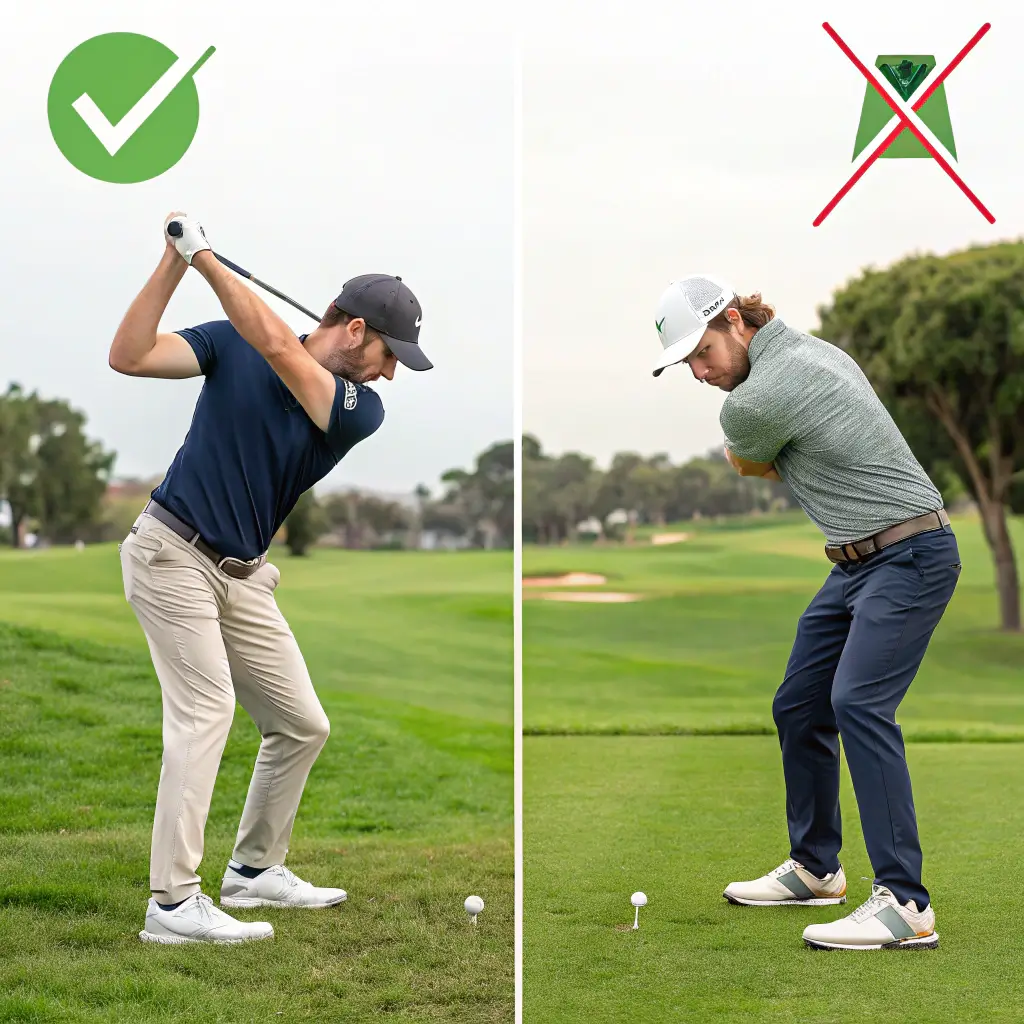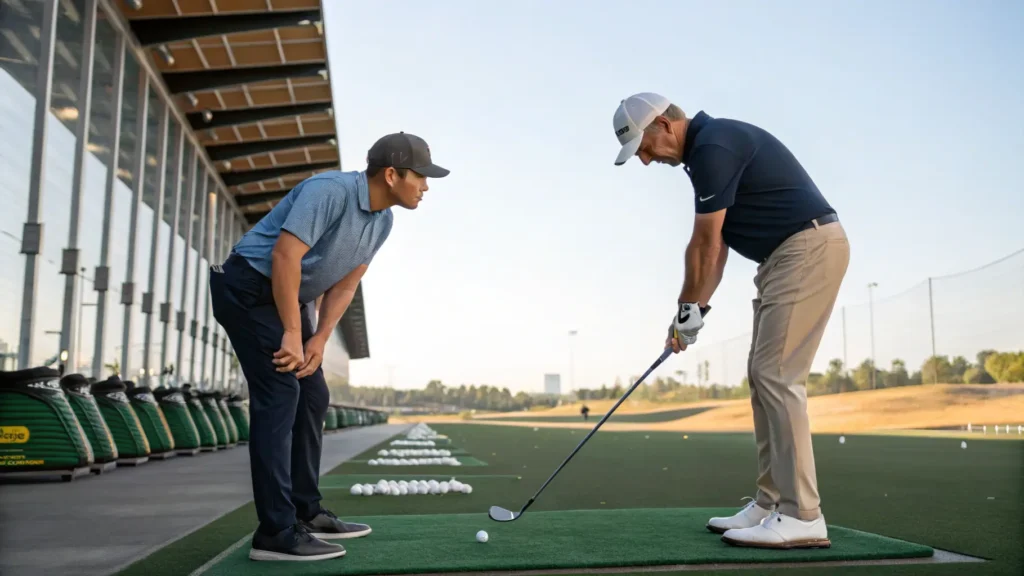Why Golf is a Great Sport for Beginners
Golf is an accessible sport that welcomes players of all ages and skill levels. It combines physical activity with mental challenges, making it ideal for beginners. The game can be played individually or in groups, providing a versatile experience. Golfing lessons for beginners can help you develop skills while enjoying the outdoors.
- Why Golf is a Great Sport for Beginners
- What to Expect in Your First Golf Lesson
- Choosing the Right Golf Instructor
- Common Mistakes Beginners Make and How to Avoid Them
- Tips for Practicing Golf at Home
- The Cost of Golf Lessons and Budgeting Tips
- Frequently Asked Questions (FAQs)
- Conclusion: Embracing the Journey of Learning Golf
- Beginner Golf Lessons: Your Ultimate Guide to Starting Golf

Physical and Mental Benefits of Golf
Golf offers numerous physical benefits, including improved cardiovascular health and increased flexibility. Walking the course provides a great workout, burning calories while enjoying nature. Mentally, golf promotes focus and concentration, helping to reduce stress. The game encourages strategic thinking, enhancing problem-solving skills. Overall, golf is a holistic activity that nurtures both body and mind.
Social Aspects of Golf
Golf is inherently social, fostering connections among players. Whether you’re playing with friends or meeting new people, the sport encourages camaraderie. Golf outings often lead to networking opportunities, making it a great choice for business meetings. The etiquette involved in golf also teaches respect and sportsmanship, enhancing social interactions on and off the course.
What to Expect in Your First Golf Lesson
Your first golf lesson will introduce you to the fundamentals of the game. Expect a friendly environment where you can learn at your own pace. Instructors will focus on golf swing basics, grip, stance, and posture. You’ll also engage in golf drills designed to build your confidence and skills.
Overview of a Typical Lesson Structure
A typical lesson begins with a warm-up, followed by instruction on key techniques. Instructors will demonstrate proper swings and provide personalized feedback. You’ll practice various shots, including drives and putts. The lesson concludes with a review of what you’ve learned, along with tips for future practice. This structured approach ensures a comprehensive understanding of the game.
Essential Equipment for Beginners
As a beginner, you don’t need a full set of clubs. Start with a driver, a putter, and a few irons. Comfortable golf shoes and weather-appropriate clothing are essential. Consider investing in a golf glove for better grip. Many courses offer rental equipment, allowing you to try before you buy. Familiarize yourself with basic golf etiquette to enhance your experience on the course.
Choosing the Right Golf Instructor
Finding the right golf instructor is crucial for beginners. A good instructor can make the learning process enjoyable and effective. Here are some key factors to consider when selecting a golf coach.
Qualifications to Look For
Check for certifications from recognized golf organizations. Look for instructors with experience teaching beginners. A good instructor should have a solid understanding of golf swing basics. They should also be knowledgeable about golf etiquette and rules. Ask about their teaching methods and success stories. Personal recommendations can be valuable. Consider their availability and location for convenience. A qualified instructor will tailor lessons to your skill level and goals.
Importance of Teaching Style
Teaching style can significantly impact your learning experience. Some instructors focus on technical skills, while others emphasize a more holistic approach. Choose an instructor whose style resonates with you. Look for someone who communicates clearly and encourages questions. A good instructor should provide constructive feedback. They should also incorporate fun drills to keep you engaged. Observe a lesson if possible to gauge their interaction with students. A positive learning environment fosters growth and confidence.

Common Mistakes Beginners Make and How to Avoid Them
Many beginners make common mistakes that can hinder their progress. Recognizing these pitfalls is the first step to improvement. Here are some frequent errors and tips to avoid them.
Overthinking the Swing
Beginners often overanalyze their swing mechanics. This can lead to frustration and inconsistency. Focus on the basics rather than perfecting every detail. Practice your swing regularly to build muscle memory. Use drills to simplify your swing thoughts. Remember that golf is as much a mental game as it is physical. Stay relaxed and trust your instincts during play. Consider recording your swing to identify areas for improvement.
Neglecting Short Game Practice
Many beginners prioritize driving over short game skills. However, the short game is crucial for lowering scores. Dedicate time to practice chipping and putting. Incorporate short game drills into your routine. Understand that most strokes are taken around the green. Focus on distance control and accuracy. Use various clubs to develop versatility. A strong short game can significantly improve your overall performance.
Tips for Practicing Golf at Home
Practicing golf at home can be both effective and enjoyable. With the right setup and drills, you can improve your skills without stepping onto the course. Here are some tips to get you started.
Setting Up a Practice Space
Choose a dedicated area in your home or yard for practice. Ensure it’s spacious enough for swings and drills. Use a mat to simulate the feel of a golf course. Consider a net for hitting practice to catch stray balls. Keep your space organized with essential golf equipment for beginners, like clubs and balls. Add a mirror to check your stance and swing. Use alignment sticks to help with your aim. Make it comfortable with good lighting and ventilation. Personalize your space with motivational quotes or images of your favorite golfers.
Drills to Improve Your Game
Incorporate various drills into your practice routine. Start with putting drills to enhance your short game. Use a cup or target to aim for. Work on your chipping by practicing from different distances. For full swings, focus on golf swing basics using a weighted club or resistance bands. Try the “clock drill” for putting, where you place balls around the hole at different angles. Record your swings to analyze and improve your technique. Set specific goals for each practice session to track your progress. Consistency is key, so practice regularly to see improvement.
The Cost of Golf Lessons and Budgeting Tips
Understanding the costs associated with golf lessons is crucial for budgeting. Golfing lessons for beginners can vary widely in price, depending on location and instructor experience. Here’s what you need to know.
Average Costs of Lessons
On average, individual golf lessons range from $50 to $150 per hour. Group lessons are often more affordable, costing between $25 to $75 per person. Some facilities offer packages that can reduce the overall cost. Online lessons can be a budget-friendly alternative, typically ranging from $10 to $50 per session. Consider the experience level of the instructor, as more experienced coaches may charge higher rates. Factor in additional costs for equipment and practice sessions when budgeting for lessons.
Finding Affordable Options
Look for local golf clubs that offer introductory packages for beginners. Community centers may provide affordable group lessons. Check for promotions or discounts during off-peak seasons. Online platforms often have competitive pricing for virtual lessons. Consider joining a golf association for access to member discounts. Ask friends or family for recommendations on affordable instructors. Utilize free resources like YouTube for beginner golf tips and instructional videos. Networking with other golfers can lead to shared lessons or group practice sessions.

Frequently Asked Questions (FAQs)
Golf is a rewarding sport, but many beginners have questions before they start. Here are some common queries about golfing lessons for beginners.
How long does it take to learn golf?
What should I wear for my first golfing lessons for beginners?
Can I take lessons without owning clubs?
How often should I take lessons?
Are group lessons effective for golfing lessons for beginners?
Conclusion: Embracing the Journey of Learning Golf
Learning golf is a rewarding journey filled with challenges and triumphs. As you embark on this adventure, remember that every golfer started as a beginner. Embrace the process and enjoy the small victories along the way.
Golfing lessons for beginners are essential for building a solid foundation. They provide structured guidance, helping you understand golf swing basics and proper techniques. With the right golf instruction for beginners, you can develop your skills effectively.
Practice is key. Regular golf practice will enhance your abilities and boost your confidence. Incorporate golf drills into your routine to focus on specific areas, such as putting or driving. Consistency will lead to improvement over time.
Don’t forget about golf etiquette. Understanding the unwritten rules of the game will enhance your experience and that of others on the course. Respecting fellow players and maintaining pace of play are crucial aspects of the game.
Investing in the right golf equipment for beginners can make a significant difference. Choose clubs that suit your height and swing style. Comfortable shoes and appropriate attire will also enhance your performance and enjoyment.
Consider seeking golf coaching for personalized feedback. A coach can identify areas for improvement and provide tailored advice. This one-on-one attention can accelerate your learning process.
Stay motivated by setting achievable goals. Whether it’s mastering a specific shot or lowering your score, having clear objectives will keep you focused and engaged. Celebrate your progress, no matter how small.
Connect with other beginners. Joining a local golf group or participating in beginner golf tips workshops can provide support and camaraderie. Sharing experiences with fellow newbies can make learning more enjoyable.
Lastly, remember that golf is as much about enjoyment as it is about skill. Don’t be too hard on yourself. Every round is an opportunity to learn and grow. Embrace the journey, and you’ll find that golf can be a lifelong passion.
Beginner Golf Lessons: Your Ultimate Guide to Starting Golf
Are you ready to take your first swing at golf? Whether you’re looking for golfing lessons for beginners or just some beginner golf tips, this guide will help you navigate the exciting world of golf. With the right golf instruction for beginners, you can quickly improve your skills and enjoy the game.
Understanding the Basics of Golf
Before diving into lessons, familiarize yourself with the fundamentals:
- Golf swing basics: Focus on grip, stance, and posture.
- Golf etiquette: Respect the course and fellow players.
- Golf equipment for beginners: Invest in a basic set of clubs and essential gear.
Finding the Right Golf Lessons for Newbies
Look for local golf courses or clubs that offer:
- Group lessons: Cost-effective and social.
- Private coaching: Personalized attention to improve your game.
- Online tutorials: Flexible learning at your own pace.
Essential Beginner Golf Tips
Maximize your learning with these tips:
- Practice regularly: Consistency is key to improvement.
- Focus on short game: Putting and chipping are crucial.
- Stay patient: Progress takes time, so enjoy the journey.
Effective Golf Drills for Beginners
Incorporate these drills into your practice routine:
- Alignment drills: Ensure proper stance and aim.
- Putting drills: Improve accuracy and distance control.
- Chipping drills: Enhance your short game skills.
